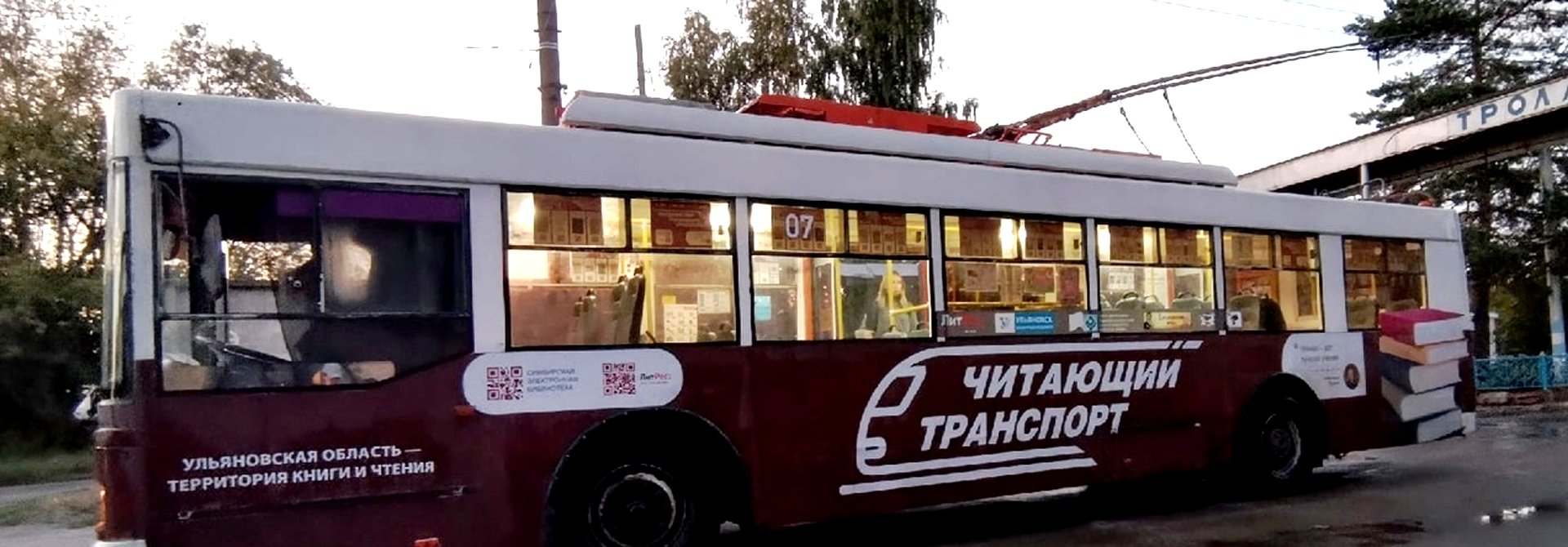Тhe Ulyanovsk UNESCO City of Literature Program Directorate continues publishing The Only Question - new international project - materials. 40 authors from 18 UNESCO literary cities (or related cities) participate in the project. Authors from Heidelberg and Dublin – Şafak Sarıçiçek and Csilla Toldi – are the new guests of the project.
The organizers invited writers, poets, playwrights, translators from UNESCO literary cities to imagine they have the opportunity to ask just one question to an author from any other literary city. The initiative will help to introduce the authors from the literary cities to each other and establish their dialogue. The project will also let to understand what issues are of concern to authors from different countries today. Besides, it will provide an opportunity for readers to get to know new writers and poets.
Questions and answers by the authors (in Russian and English) along with a short biography of each participant and links to their publications will regularly appear on the Ulyanovsk UNESCO City of Literature Website, other literary cities' websites, and social media, etc. Writers' dialogs will also be offered for publication on the project partners' platforms (literary magazines, libraries, literary media, and mass media). As a result of the project, in summer 2022 an online anthology will be released (in Russian and English) with all the conversations.
Heidelberg and Dublin – Şafak Sarıçiçek and Csilla Toldi
Şafak Sarıçiçek
Dear Csilla, happy to meet you, at least by mail.
From the biographical information available to me regarding you, I learned that you fled socialist Hungary as a teenager and settled in Germany, then moved to the UK and finally you settled in Ireland.
In Germany you made a living as a translator, while in the UK you obtained a visa to work on films, your writing covers movie scripts, short fiction and poetry. Your poetry debut is autobiographical. Thus: Would you say that writing (professionally) is about dealing with and travelling into what is unknown to oneself (generally, poetologically, genre-wise etc) or is it a voyage into oneself and so to say into the known.
Did writing teach you things about you, which you weren’t aware of ?
Csilla Toldi
Dear Safak, thank you for the question. While I am thinking about it, can I ask whether you write in your first language or not? Your answer might help me to formulate a question.
Şafak Sarıçiçek
Dear Csilla, of course you can. The answer is a little bit complicated. My parents' actual language is Zazaki, a Kurdish language, with Iranian linguistic roots, threatened with extinction in the future (also according to the UNESCO), if the developments in society and between the older and younger generations remain the same.
So my actual mother tongue is Zazaki, but I can only use some cursing words in it and understand Zazaki (or Kirmanckî is another name) in general, but not really speak it.
I never learned it, as there was first and foremost the pressure to learn German and second Turkish. Not for the language of my ancestors though.
Also we have partly Armenian heritage, but that part has been fully assimilated since my great-grandparents... I was brought up bilingual, Turkish and German.
With every member of my family I had and have a different combination of language use, speaking German solely and Turkish circumstantially, or: speaking Turkish solely and no German at all, or: mixing both in another dialogue. My German is better than my Turkish. I write nearly only in German. So my answer is: I do not write in my first language...
Csilla Toldi
This is fascinating. Earlier this year I made a video poem with many languages that are nearing extinction, but I knew nothing about Zazaki. My linguistic question is: Given the fact that you are an exophonic writer, in what way is your expression in German influenced by Turkish, if at all? Thematically, on the other hand, what are the main influences on your writing? Do you carry or express some of your literary or cultural heritage in your work?
Şafak Sarıçiçek
Dear Csilla, your question on whether Turkish influences my German expression is a very essential one.
I read in a gallery in Berlin last month. There, exactly the same question was posed. Thus, from my poetry, some out of the audience recognized that the German language was used in an unconventional manner.
Having a Turkish-German linguistic upbringing, i look upon grammatical rules, common understandings of terms etc. on a 'could be' - basis, not a must. This freedom is already embodied in the spirit of poetry itself.
It defies the strict borders (which for example make out the very core of the German law and legal studies in general). In Turkish you say, as an example, 'yürümüştüm'. That means: I had walked, embodied in one word!
There are many, countless more, such special structures. This enables to look at language from the standpoint of freedom.
Why limit the possiblities of a language, why not extend it ? Languages are living beings, thus also growing. Regarding your second question, both Heidelberg and Istanbul have been an immense influence on my writing. Studying law has also shaped my understanding of language, helped focusing the associative connections and with form and structure.
I'd say thematically, in general, my main influences have been the travelling in between cultural spheres, thus between mentalities that differ and yet share a lot at the same time, also an intergenerational trauma that stems from the genocidal actions against minorities on Anatolian soil: much of the alienation, search for distance and nearness, as well as the spiritual quest for the mystic in everyday life, which i try to deal with poetologically and in my prose, stems from there, I think...
Kurdish writers like Yasar Kemal, Cemal Süreya, Ahmed Arif have been a major inspiration for both my prose and poetry, also movies by Yilmaz Güney, with their direct realism and societal critique.
In general the literature that has its roots in Anatolia, be it, by writers like Orhan Pamuk, Nazim Hikmet, Aziz Nesin (and so on), have profound "terraforming effect" (greeting the Star Trek Trekkies) on the small globe of literature that i try to settle upon.
Csilla Toldi
Dear Safak, It is interesting that Hungarian grammar is very different from all Indo-European languages, but it has lots of Turkish influences, as the Ottoman Empire ruled over Hungary for 150 years. We have only one past tense, for instance, but declination has the same structure as Turkish: we can say “they could have summerised it” in two words: "összefoglalhatták volna”. I think I play with language in a similar way, and I like to think that my metaphors and musicality of English are enriched by my Hungarian first language.
I am translating from Hungarian into English at the moment, but as you have discovered, I have German as well. It would be interesting to translate a poem of yours as an experiment. Your list of poets is interesting. I have just got to know Ilhan Sami Comak’s poetry recently, as we were supporting him with PEN and of course Anatolia was mentioned by Erkut Tokman in his introduction.
Thank you for your first playful question, which feels like an oxymoron. My life informs my writing, I write what I know, but on the other hand I can be surprised by the actions of the characters I create. When I am writing about my own life, I can become a character. Whatever I write about myself is always just a facet of the truth, for we never know the whole truth. We cannot know the intricate web of influences that direct our actions just as well as we cannot know the whole range of their consequences at the time we act. On a more practical level I enjoy translating for it makes me learn the minds of other writers and their creations.
In poetry I often write about memories, but the minute you put them into a form they start to transform into something else. Often the original feeling or memory is no longer there, or a year later they gain new meaning and get re-written and grow another layer. I think writing made me aware of how much I like structure and that words can become building blocks while you never know what you are creating, a tower, a bridge, a castle in the sky or a pigsty? The reader will transform the piece yet again in their mind, so perhaps, the answer to your question is that writing is a voyage into oneself and so to say into the unknown.
ABOUT THE AUTHORS
ŞAFAK SARIÇIÇEK

Photo by Deniz Sarıçiçek
Born in Istanbul. Studied Law in Heidelberg and Copenhagen. Published five poetry books, last: Im Sandmoor ein Android. Also published in many different anthologies and literary magazines. Various awards, last: Heidelberg Writers Prize 2021
https://www.literaturport.de/Safak.Saricicek/
https://poesiefestival.org/en/artists/safak-saricicek/
https://www.brotundkunst.com/saricicek-safak
https://www.uni-heidelberg.de/studium/journal/2017/11/saricicek.html
https://elifverlag.de/portfolio/safak-saricicek/
https://www.youtube.com/watch?v=wkY25ym7qQU
https://www.textland-online.de/index.php?article_id=1553
https://www.quintus-verlag.de/Autoren/Saricicek-Safak/
Csilla Toldy

Csilla Toldy was born in Budapest. She escaped from the socialist Hungary in 1981. For the next three years she lived in many European countries, in France, Austria and Germany, where she finally settled. She studied languages and worked as a translator in Germany. - She moved to the British Isles with a writer's visa to work on films in 1995.
Her writing was supported by British Screen, Media and Northern Ireland Screen, and the Arts Council of Northern Ireland, National Lottery.
She received a Masters Degree in Creating Writing for Film and Television from Sheffield University in 2003. She participated in workshops lead by: Sundance, Arista, The National Film and Television School.
With her scripts she won the Katapult Prize and The Special Prize of the Motion Pictures Association as the Hungarian winner of the Hartley-Merrill Prize. In 2019 she was quarterfinalist at the Big Break Competition of Final Draft. She lives in Northern Ireland in Rostrevor, at Carlingford Lough. Csilla works as a poet, writer and a tutor of creative writing, teaches yoga and meditation and writes about it.
https://twitter.com/CsillaToldy
https://www.facebook.com/csillatoldy.co.uk/
https://www.linkedin.com/in/csilla-toldy-a3979921/
https://www.instagram.com/csillatoldy/
Previous issues:
- Heidelberg-Ulyanovsk – Şafak Sariçiçek and Sergei Gogin
- Melbourne - Heidelberg – Christopher Raja and Klaus Kayser
- Calgary-Mannheim - Kelly Kaur And Claudia Schmid
- Melbourne And Ulyanovsk - Rijn Collins and Gala Uzryutova
- Heidelberg - Nottingham – Ingeborg von Zadow and Leanne Moden
- Durban-Ulyanovsk – Adiela Akoo and Sergei Gogin
- Heidelberg-Ulyanovsk|Moscow – Şafak Sarıçiçek and Irina Bogatyryova
- Yekaterinburg-Iowa City – Ekaterina Simonova and Jacquelyn Bengfort
- Iowa City-Québec – Jeremy Geragotelis and Vanessa Bell
- Heidelberg-Ulyanovsk – Juliane Sophie Kayser and Gala Uzryutova
- Durban-Melbourne – Adiela Akoo and Rijn Collins





